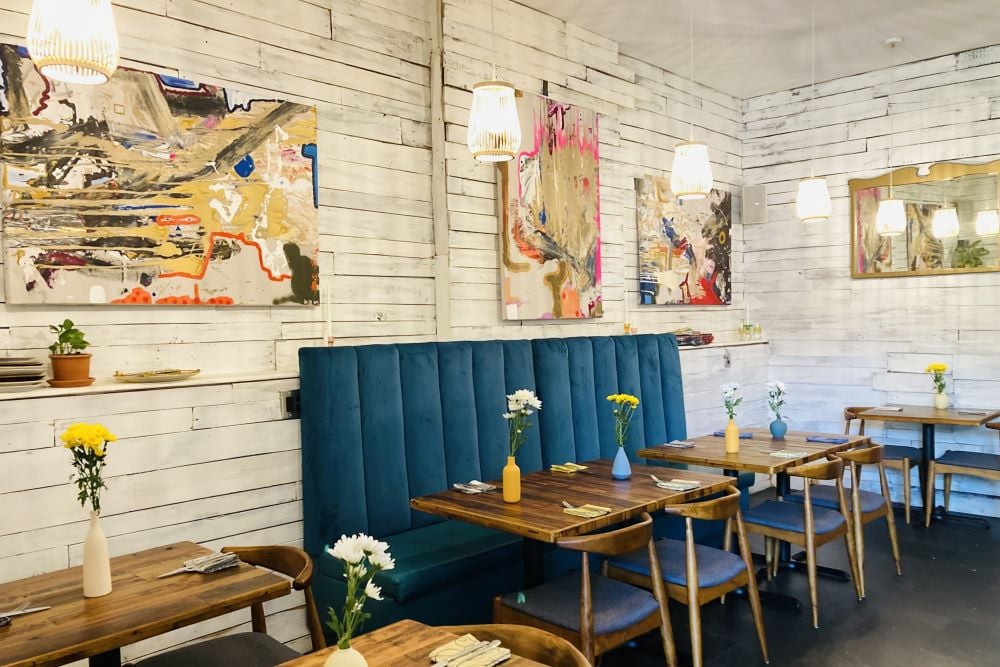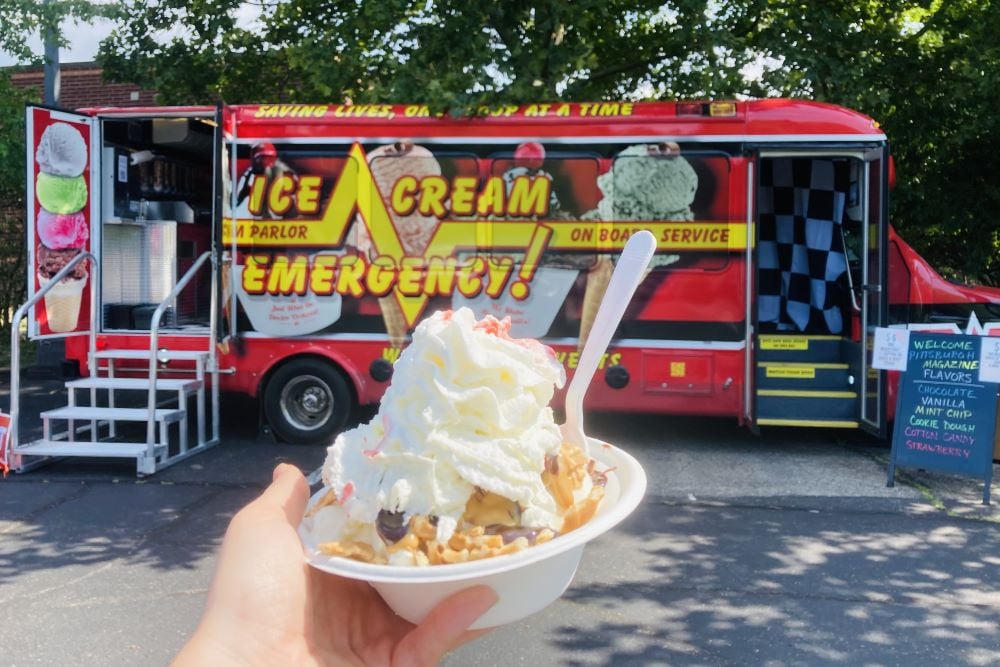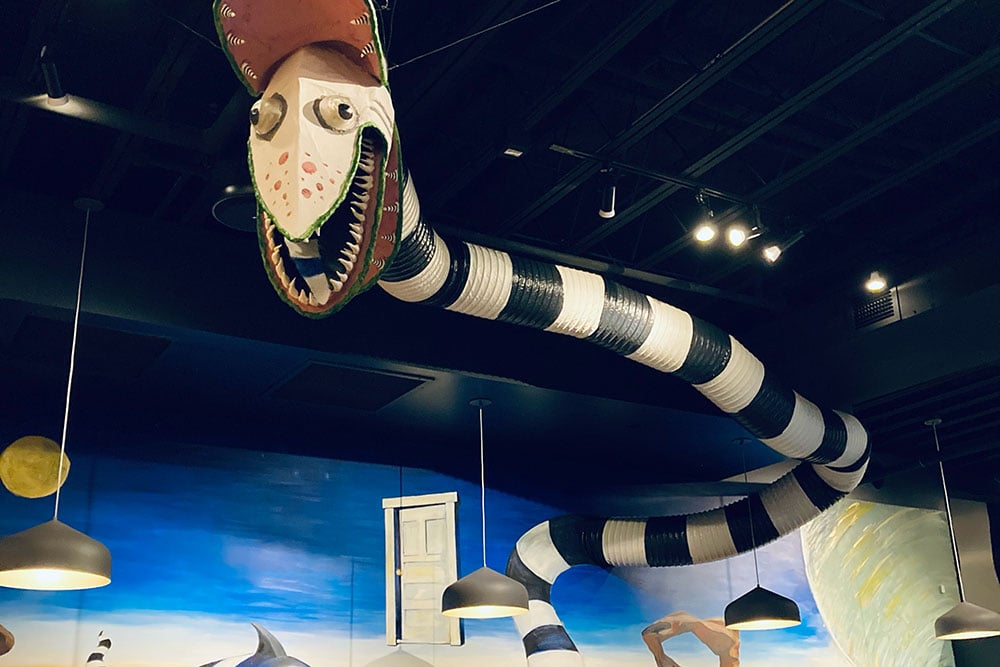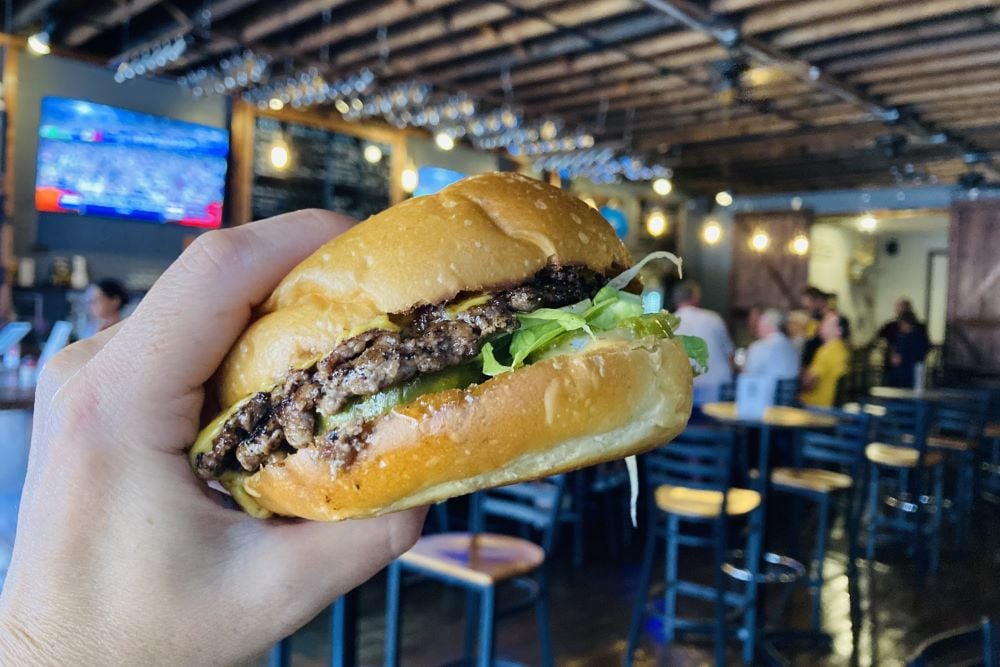Will Trace Brewing’s Good Vibes Reverberate At A Second Location?
Echo, a taproom and cafe, is expected to open in Uptown in 2024.
Trace Brewing broke the mold when it opened in a former foundry at the end of 2020.
Since those socially distanced days, the company has gone from selling to-go-only 4-packs to packing the house during regular events such as Drag Brunch, Latte Art Throwdown and Slappers N Bangers, a monthly tribute to hip-hop, R&B and trap music.
Now the busy Bloomfield business is creating a buzz in Uptown.
In 2024, Trace plans to unveil a taproom at 23 Miltenberger St., located off Forbes Avenue in a neighborhood known as The Bluff. The satellite site will operate under the same coffee-and-beer service model, but will have a distinct name. Trace Echo will be smaller than the 5,800-square-foot headquarters at 4312 Main St. in Bloomfield. It also will be the first dedicated storefront for Ghost Coffee Collab, Trace’s current cafe partner.
“It’s an echo of the Trace brand; a Trace Junior,” says Aadam Soorma, head of marketing and guest experience.
When I interviewed founder Dave Kushner in July 2020, he said the name Trace is open to interpretation, but customers can trace the passage of time at the 113-year-old Bloomfield building. The former foundry went on to become a film-developing studio and a music venue called The Shop. There’s still a set list from the ‘90s scrawled on the wall.
The Bloomfield site has a long history of manufacturing; it went from precious metals to good vibes. Kushner says the atmosphere at Echo will also center around positivity and inclusivity. Senior communications manager Brooke Keane is constantly updating the events page with parties that celebrate artists and patrons from all walks of life. Echo will reverberate with the same kind of energy.
She says area artists will be asked to add life to Echo’s long-vacant interior. And she hopes local historians can shed light on the history of the Uptown structure. The building is somewhat of a mystery to the beer-makers and property owner Mike McAllister of Epic Development, the design firm that helped create Trace’s modern-yet-retro aesthetic.
It was built around 1920 and housed several businesses over the decades. Construction workers, who are preserving architectural elements such as the tin ceiling, found a Stutz Pharmacy sign inside.
Echo will have large windows and design elements similar to the “raining neon” fixtures hanging from the Bloomfield ceiling. There will be apartments above the 40-seat taproom and the property will boast a three-season beer garden with seating for 70.
Although a purveyor has yet to be determined, Echo will feature a static food truck concept, with its own signage and hours of operation. Ghost will also operate as its own entity serving a full espresso bar and grub from a soon-to-be-announced food partner.
Joe Burns, Ghost’s founding partner and roaster, and head of coffee for Trace, wants the cozy space to be a place where people can geek-out over the beverage with baristas and patrons alike.
“We try to be educational more than anything,” he says. “The menu is traditional and standard in Bloomfield. In Uptown it will be more creative; things that people haven’t seen before.”
Coffee fans can purchase Ghost roasts online, in Adda Coffee & Tea House locations and at Orbis Caffe in Mt. Lebanon.
Soorma says Duquesne University students will be able to spend their meal plan funds at Echo, just like they do at Moonlit Burgers and other nearby eateries open to the public.
There won’t be a parking lot, but there’s a covered bus stop and a bike lane outside of Echo. Trace management is working with Uptown Partners, a nonprofit also based on Miltenberger Street, and neighborhood businesses.
In addition to coffee and beer, Echo will serve kegged beverages from Pittsburgh Winery, Goodlander Cocktail Brewery, cold brew and other local libations. Since Rolling Rock beer was first sold and distributed a few blocks away from Echo, the taproom may serve the suds.
Trace wants to give a nod to Pittsburgh’s beer heritage while it educates the next generation of brewers. The company’s vocational training program gives aspiring brewers a six-month, paid internship, which is a mix of coursework and hands-on learning with head brewer Zach Colton. In an effort to diversify the brewing industry, they look to train (and hire) folks who don’t fit the status quo. Women, people of color and members of the LGBTQ community are encouraged to apply.
“It’s very intentional hiring,” Soorma says. “We curate a vibe that stems from the people. The actual world is represented in our staff and that is reflected in the service. It’s hard to find people who care about what they’re doing. Everyone who works here loves it a lot.”
















